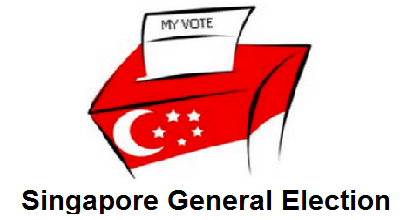
No matter how big will be the victory for the People’s Action Party, PAP, the dominating party since its foundation fifty years ago, people in Singapore are discovering democracy. Following the election from far by reading news from different media outlets including the few truly independent blogs allowed to operate in the city state, you can really realize how the word change is key to understand the aspirations of the Singaporeans.
It will be definitely a change within the existing de facto one party system of the PAP but there is no doubt that the political space is opening up for good in Singapore. People are no more hesitant about talking about change. People wants change and surely change has been happening in Singapore since the last election in 2011 where the PAP “only” got a 60% of the vote.
The leaders of the party realized that 2011 election was a truly “watershed” as many analyst have defined an historical election where for the first time the main opposition party, the Workers Party got a considerable jump in its seats in the parliament ( still too few because of an electoral system that supports continuity and stability rather than representation).
The opposition is thriving. Being a truly open market, turbo capitalist society, there is a pretty good variety of choices for the electorate to think as an alternative to the PAP. Alongside the Workers Party, you find at least five political parties with a certain following but still too many to really pose a serious threat for the ruling party. You have the Singapore Democratic Party, you have the Singapore People Party, you have the Reform Party, the National Solidarity Party, the Democratic Progressive Party, you have an entirely new party called SingFirst. In short you have quite a long list of alternatives, all with serious, well thought manifestos that at least on the paper offer some “food for thoughts” to think critically about the policies implemented so far by the PAP.
The fact that all the opposition parties have been proposing well elaborated and structured policies alternatives despite the short time to prepare for the election (the election was called just after the celebrations of the 50th years of Singapore’s independence in august and this tells you quite a lot about the strategy of the PAP) is a good indicator about the progresses being made the city state towards graduating as a full democracy status.
Be clear, Singapore is still not a full democracy but the doors were breached in 2011 and change is inevitable. Later than sooner this will happen.
Yet the people are ready for that change. It will be more gradual and incremental. Few city councils, the locally elected bodies, will pass to the opposition and people will get accustomed with a different way of governing in the bad and in the good.
The incumbent has lots of advantages and fifty years of “expertise” on the job with outstanding results after all. People certainly do not regret the achievements of a one party system. Yet Singapore, despite its positive image in the world, is not a paradise on earth.
People are not happy ( this was showed in quite a few global surveys). People ( not all but the majority) got very high standards of living but at a very high price. Citizens complaints about high cost of living, lack of a welfare system and are fed up with the paternalism and bossy attitudes of the Big Brother, the PAP.
PAP will continue dominating the political scene still for at least two more elections. Few elements are on its favor: problem number one as mentioned is that the electoral system disproportionally favors the incumbent; problem number two: the opposition is still too divided and fragmented. A certain level of consolidation among the opposition parties will be needed. Some parties suffer of ego problems of their founders despite sharing similar philosophies. Problem number three: while there is a certain level of insatisfaction, the majority of the people has vastly benefited of the economic prosperity.
While an higher number of youths are disenfranchised from the system, many more are also happy with that.
After all, there is little reason for a rushed change if you have been benefiting and taking advantage of capitalistic society like the one in Singapore. Money and cars counts. Up to a certain point though. The numbers of those dissatisfied might increase in the near future no matter how many BMWs and Mercedes are roaming around town.
Since 2011, PAP understood this and it is trying to embrace a more human approach. Only time will tell how long the Singaporean will wait for a real watershed to happen.
To have a review of political parties in Singapore:
http://www.theonlinecitizen.com/2015/09/ge2015-parties-in-review/










Add new comment